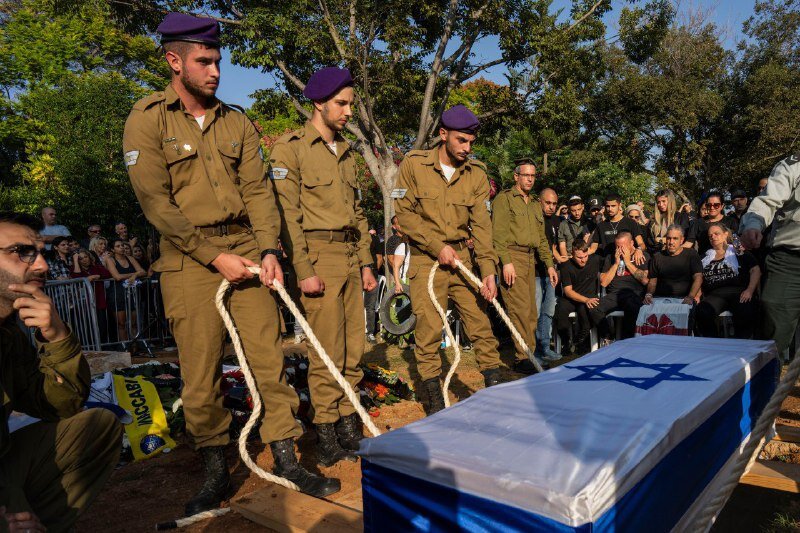Israel faces decision-making challenges following 4-day truce

TEHRAN – After almost 50 days of conflict, the global community witnessed a temporary cessation of military actions by the Zionist regime against the innocent people of the besieged Gaza Strip.
Despite rejecting the ceasefire more than 12 times publicly and privately during mediator-led discussions between Tel Aviv and the Hamas movement, the Zionists were ultimately compelled to accept it.
The 4-day temporary ceasefire highlighted the failure of the Zionist regime. Despite extensive bombings, destruction, and war crimes, coupled with Tel Aviv’s assertions of security and military prowess, and being backed by countries like the United States, the United Kingdoms, and France, the Israeli forces were unsuccessful in their attempt to take full control over the small enclave of Gaza.
Prime Minister Netanyahu and Israel’s emergency cabinet initiated a ground battle in Gaza with the aim of destroying Hamas and liberating all Israeli captives in the Gaza Strip.
Israeli journalist Ohad Hemo stated, “After 49 days of war, Hamas has demonstrated its resilience, maintaining control over the Gaza Strip. The Izz al-Din al-Qassam Brigades (IQB), the military wing of Hamas, effectively implemented the ceasefire in both the south and north of the Strip, even in units presumed to have communication cut off. They also urged people in the Gaza Strip not to disclose information about the mechanism for freeing prisoners during the ceasefire. Demonstrating strategic moves, they efficiently transported prisoners to a hospital in Khan Yunis, likely the pulsating heart of Hamas, the secondary capital after Gaza City.” Ohad continues: “Hanna Katzir, one of the Israeli prisoners returns from captivity after it was claimed that she has been dead. This situation enlightens us about Hamas’s firm control over the Gaza Strip, emphasizing that the point at which Hamas will genuinely yield is not imminent.”
Ceasefire for Palestine
The Zionist regime, despite nearing one of its claimed goals - the release of persons taken captive on October 7 - could have secured this agreement before ground operations. This way, they could have saved billions of dollars and avoided international condemnation. A recurring question in Israeli media is, if the release of captives was supposed to be accompanied by the freedom of Palestinian prisoners, then what was the reason for all the money that has been wasted on warfare?
During these four days of temporary truce, Hamas only frees Israeli women and children. For the liberation of captured soldiers and officers, much more serious costs will need to be incurred.
However, Tel Aviv’s problem will emerge after the fourth day of the ceasefire.
Firstly, resuming war and attacks will face strong reactions, both domestically and internationally, especially since the achievements of pre-ceasefire attacks were indefensible. The repetition of such brutal actions would be unwelcome for many parties involved, even if the all-encompassing goal is to destroy Hamas, in accordance with the Zionist regime’s main objective.
Secondly, the regime’s military decision to restart the war will not be easy like the first day. Reports of some retreats in Gaza have been released. If this change in the situation becomes significant after the fourth day, it will be much more challenging for the Zionists. It should not be forgotten that this pause provides an excellent opportunity for resistance to alter the field, reorganize forces, and increase the security vacuum for the Zionists.
Thirdly, the motivation of Palestinians and resistance groups will be a challenge for Tel Aviv decision-makers. Even a four-day ceasefire, accompanied by the freedom of Palestinian women and children, can bring numerous advantages. Hamas and the resistance movements have prepared for a long-term battle. In order to endure this great brutality, they require substantial provisions for the humanitarian and social needs of the 2.3 million Palestinians residing in Gaza, especially the approximately 800,000 remaining in northern Gaza.
The return of a group of Palestinian people to the north, crucial after four days, alongside significant humanitarian and food aid entering the region, will greatly contribute to the resilience of Hamas and resistance groups.
While the first prisoner exchange on Friday clearly demonstrated how much this ceasefire will help the spirits and self-confidence of the Palestinians and the resistance groups, it will undoubtedly influence the Zionist regime’s decision to initiate more attacks.
MAS/PA

Leave a Comment